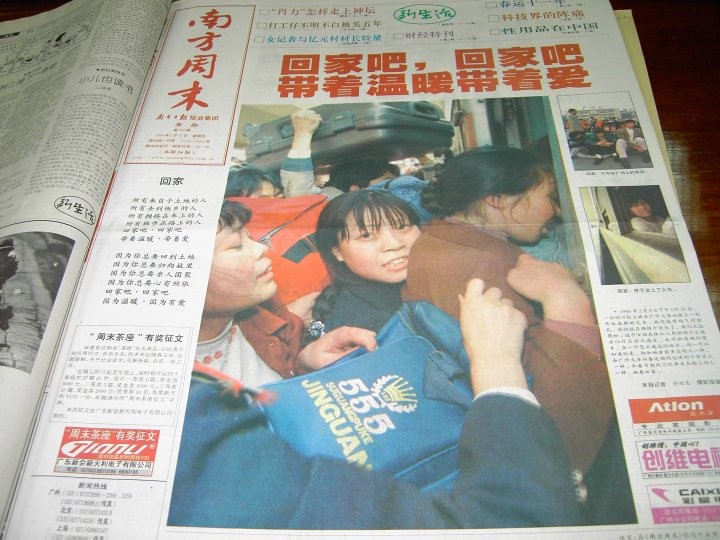China's Southern Weekly Journalists Stand Up Against “Raping” Party Censorship

Some Chinese journalists have stood up against state censorship and demanded the resignation of a propaganda chief after a New Year editorial calling for reforms was turned into a Communist Party tribute.
Thirty-five former journalists and 50 interns form the Southern Weekly newspaper in the eastern Guangdong province accused the local party propaganda chief Tuo Zhen of being "dictatorial" and called for him to quit, after the newspaper's annual feature was radically changed at the last minute.
Another 60 reporters signed a complaint letter, which accused Tuo of "raping" the newspaper's autonomy and added:
"If the media should lose credibility and influence, then how can the ruling party make its voice heard or convince its people?"
The original version of the Southern Weekly's traditionally bold New Year editorial called for democracy, freedom and the fulfilling of promises of libertarian reforms made by the 1982 constitution.
"The Chinese dream is the dream of constitutional rule," the original version read according to the newspaper's editors, Dai Zhiyong.
The tone of the article was first watered down by the newspaper's editorial staff in mutual agreement with the Party's censors, as part of the usual "editing" process.
The article was then twisted by a night blitz from the local censor office, leaving the journalists reportedly astonished, as they read the paper in the morning.
The new version was headlined "Dreams are our promise to what we need to accomplish" and claimed Chinese people were now closer to achieving their dreams thanks to the party leadership.
It also contained a major historical error, claiming an ancient flood control reform was carried out 2,000 years after it was actually implemented.
"We demand an investigation into the incident, which has seen proper editorial procedure severely violated and a major factual error printed," the journalists' letter read.
The rare anti-censorship action soon became a major issue of discussion on Chinese social media Sina Weibo, with mixed reactions.
Many searching terms related to the matter have reportedly been blocked on the website by authorities.
Southern Weekly journalists were also targeted by an editorial from the party mouthpiece Global Times, which said media cannot exist "romantically" outside the country's political reality.
© Copyright IBTimes 2025. All rights reserved.






















